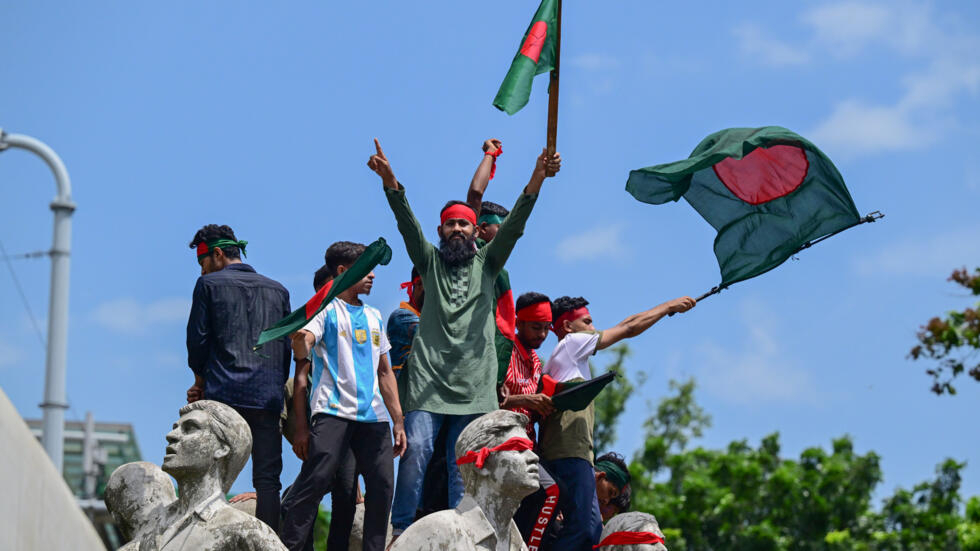On Saturday, student leaders in Bangladesh called for a nationwide civil disobedience campaign, intensifying the pressure on Prime Minister Sheikh Hasina’s government amid a growing backlash over a deadly police crackdown on protesters.
Last month’s rallies against civil service job quotas led to chaos, resulting in over 200 deaths in some of the most severe unrest during Hasina’s 15-year tenure. Although troop deployments temporarily restored order, massive crowds returned to the streets after Friday prayers, responding to student leaders’ call for further concessions from the government.
Students Against Discrimination, the group that organized the initial protests, urged citizens to commence a comprehensive non-cooperation movement starting Sunday. Asif Mahmud, a representative of the group, outlined the plan, which includes non-payment of taxes and utility bills, strikes by government workers, and halting overseas remittance payments through banks.
The students are demanding a public apology from Hasina for last month’s violence and the dismissal of several of her ministers. Additionally, they insist that the government reopen schools and universities nationwide, which were closed during the peak of the unrest. Protesters have also escalated their demands, calling for Hasina to step down. “She must go because we don’t need this authoritarian government,” said Nijhum Yasmin, 20, from a protest in Dhaka. “Did we liberate the country to see our brothers and sisters shot dead by this regime?”
The non-cooperation movement evokes memories of Bangladesh’s 1971 liberation war against Pakistan, during which a historical civil disobedience campaign was led by Hasina’s father, Sheikh Mujibur Rahman. This earlier movement is remembered with pride as a battle against tyranny. “Now the tables have turned,” commented Ali Riaz, a politics professor at Illinois State University. “The regime’s foundation has been shaken, the aura of invincibility has disappeared. The question is whether Hasina is ready to look for an exit or fight to the last.”
In response, Hasina offered “unconditional dialogue” with the students to address their demands, according to her press secretary, Nayeemul Islam Khan. “She is ready to sit with them. She does not want conflict any more,” Khan added. However, Mahmud stated that students had rejected this overture.
Hasina, 76, has ruled Bangladesh since 2009 and secured her fourth consecutive election victory in January, a vote criticized for lacking genuine opposition. Rights groups accuse her government of misusing state institutions to entrench its power and suppress dissent, including through extrajudicial killings of opposition activists.
The demonstrations began in early July over the reintroduction of a quota scheme that reserved more than half of all government jobs for certain groups, a policy that has since been scaled back by Bangladesh’s top court. With approximately 18 million young Bangladeshis unemployed, the move angered graduates facing a severe employment crisis.
The protests had been largely peaceful until police and pro-government student groups attacked demonstrators. The government imposed a nationwide curfew, deployed troops, and shut down the mobile internet network for 11 days to restore order. The clampdown was condemned by foreign governments, with European Union foreign policy chief Josep Borrell calling for an international probe into the “excessive and lethal force against protesters.” Home Minister Asaduzzaman Khan claimed that security forces operated with restraint but were “forced to open fire” to defend government buildings. The United Nations reported that at least 32 children were among those killed last month.



